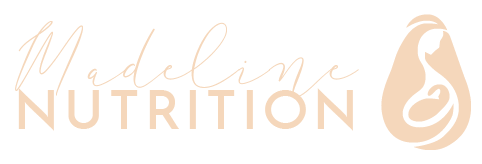Levi's Birth Story, Part 2 // The 34th Week Itch
Read the Backstory to Levi's Birth in Part 1 HERE.
The night after I hit 34 weeks pregnant, I couldn't sleep. At this point in the pregnancy game I was all too familiar with the plethora of potential nighttime discomforts, but this time was different. This time I couldn't place the blame on any of the regular sleep offenders.
My hands and feet were on fire with an itch I couldn't seem to quell no matter how vigorously I rubbed them against our sheets. After what felt like hours, I peered at the soles of my feet by the light of my cell phone, only to find my skin perfectly in tact without any hint of red, rash or bug bite.
When morning finally came, the strange itching subsided, and I tried to write it off as just one more weird ailment in a long list of potential pregnancy side effects.
But as night fell again, so did the prickling on my palms and soles. Desperate for an answer, I grabbed my phone and emailed my midwives from bed. It was 1am, and I had a response by sunrise that was devoid of their usual sweet check-ins: "We're going to have to order some blood work to rule out cholestasis."
Cholestasis? I'd never heard of it, but Google quickly filled me in. Obstetric cholestasis is essentially an unpredictable and unpreventable condition in which the normal flow of bile in the gallbladder is affected by the increased amounts of pregnancy hormones. It's essentially a liver disease that only happens in pregnancy, also called Intrahepatic Cholestasis of Pregnancy (ICP). Chilean women and women carrying twins are at a higher risk for cholestasis. I was neither. The main symptom though? Intense itching — hands and feet — usually at night — third trimester — no rash. Check, check, check, check, check.
Photo by http://jess-roy.com/
With cholestasis, the prognosis for the mother (other than really annoying itching) is good — things go back to normal once the baby is born. In contrast, ICP carries significant risk for the fetus. The main complications are prematurity, meconium-stained amniotic fluid, respiratory distress, and stillbirth. The chance of stillbirth rises significantly after 37 weeks and can increase the higher the mom's bile acid levels are as well.
Later that day I met up with one of my midwives to grab paperwork for the lab and discuss my options. The prognosis looked grim. If indeed I had cholestasis, it would mean I would need to be medically induced at the hospital at 37 weeks. This terrified me. Tears started to drop.
As a holistic nutritionist, I thought I had covered all my bases when it came to having the healthiest pregnancy possible. Preventative medicine always made the most sense to me. Do A so that B won't happen. Take A so that B will happen. And so forth.
I viewed so much of my pregnancy through the lens of these preparatory equations.
Rub shea butter and Frankincense oil on your belly to prevent stretch marks. √
Take probiotics to avoid becoming Strep B positive. √
Lay off the sugar and increase healthy fats to avoid gestational diabetes. √ (I even completely 'nerded out' on this one and monitored my own blood sugar from home for a week instead of taking the glucose screening test.)
I had a whole list of ways to avoid nausea, and lo and behold, I never threw up. √
I even had a DIY oil concoction to prevent leg cramps and used it religiously in my third trimester with great success. √
I wouldn't call myself intrinsically Type A or a "super planner," but I've come to realize that I'm a bit of a preparation junkie. Proper preparation makes me feel safe and secure.
I had a plan, like so many of us do. And I had prepared for that plan to come to fruition. It was not my preparation that was lacking, but rather my willingness to be ready if my plan did not unfold according to my expectations. Preparedness is a skill; readiness is a condition. I only knew to focus on the former.
The rest of my 34th week was filled with questions. How could this happen despite my preparation? ...my commitment to my health? ...my dedication to doing ALL THE THINGS? We often feel entitled to "our best things"...the things that our in our wheelhouse. But sometimes our preparation and control can't actually maintain them, even if they are GOOD things.
I also spent that week doing as many gentle, pregnancy-friendly liver clearing things as I could, all midwife-approved. And then four days after the original itching, I had my blood drawn (a bile acids AND hepatic function panel). All that was left to do was wait for the results and pray it was all an itchy coincidence.
The night after I hit 35 weeks pregnant, the test results still hadn't come. I made my way to the bathroom at 4am, my sense of touch on high alert.
My weary mind was racing to notice each tactile sensation as it registered across different body parts: My fingers as they pried our bedroom door open. My feet as they padded across the cool, cement-colored bathroom tiles.
I was waiting for the creeping prick and pull of an itch. Expecting it, dreading it, and fearfully praying it away at the same time.
While my symptoms had improved (uncommon, but I'll take it!), my blood work had not. The official diagnosis came through later that day.
[Actual blood work panels below for anyone curious or battling cholestasis themselves.]


